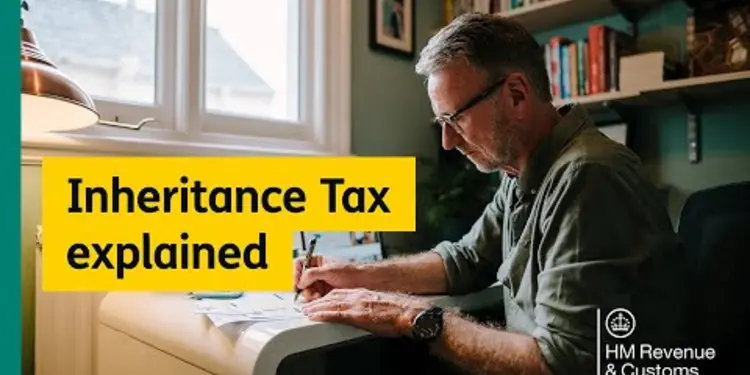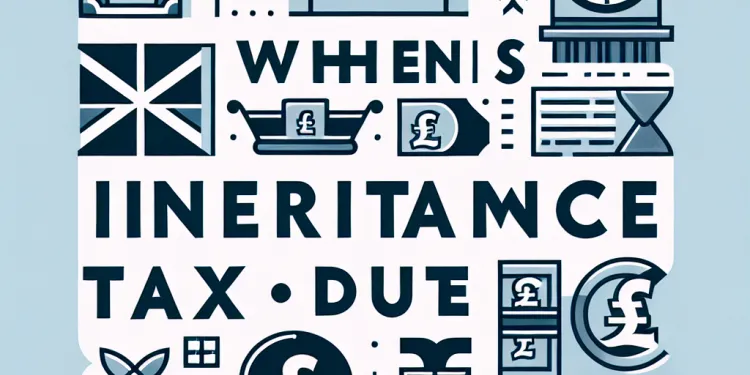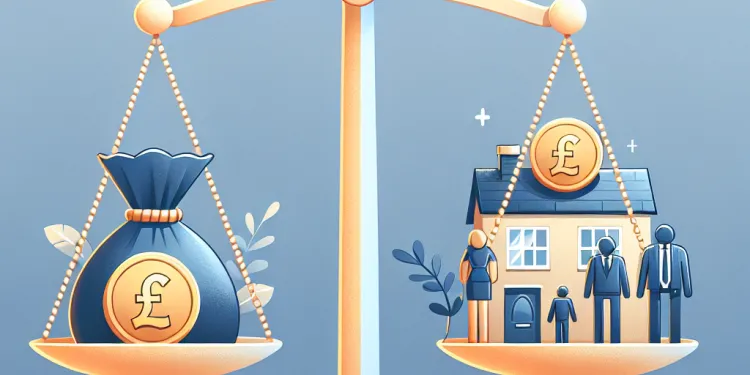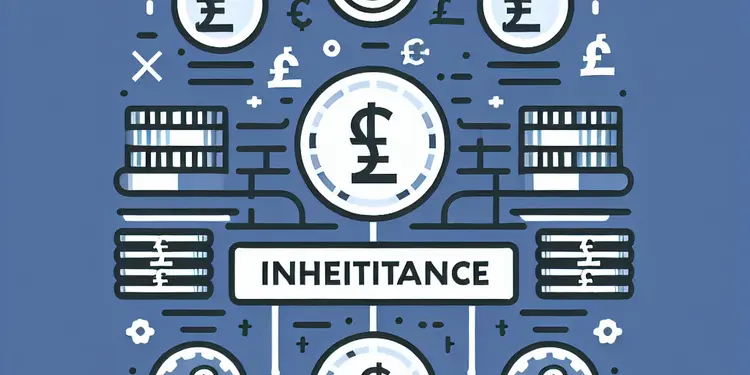
Find Help
More Items From Ergsy search
-

What is inheritance tax?
Relevance: 100%
-

What is Inheritance Tax?
Relevance: 100%
-

What is inheritance tax in the UK?
Relevance: 100%
-

What is Inheritance Tax?
Relevance: 99%
-

Do I pay Inheritance Tax on a property I inherit?
Relevance: 99%
-

What is inheritance tax in the UK?
Relevance: 98%
-

When is inheritance tax due?
Relevance: 96%
-

Who pays the inheritance tax?
Relevance: 96%
-

Is there a difference between inheritance tax and estate tax?
Relevance: 96%
-

How is inheritance tax calculated?
Relevance: 95%
-

Are there deductions available for inheritance tax?
Relevance: 95%
-

Are there tax-free thresholds for inheritance tax?
Relevance: 95%
-

Can inheritance tax be deferred?
Relevance: 94%
-

Which countries impose inheritance tax?
Relevance: 93%
-

What assets are subject to inheritance tax?
Relevance: 92%
-

Who is responsible for paying Inheritance Tax?
Relevance: 92%
-

When is inheritance tax due to be paid?
Relevance: 92%
-

What is the process for paying inheritance tax?
Relevance: 91%
-

Do unpaid tax debts affect Inheritance Tax calculations?
Relevance: 91%
-

When do I need to pay Inheritance Tax?
Relevance: 91%
-

Do spouses have to pay inheritance tax?
Relevance: 91%
-

Are there professional advisors for inheritance tax planning?
Relevance: 91%
-

Can Inheritance Tax be paid in installments?
Relevance: 91%
-

Does inheritance tax vary by state or region?
Relevance: 89%
-

Can Inheritance Tax be claimed back?
Relevance: 89%
-

Are there any exemptions from inheritance tax?
Relevance: 89%
-

How is the Inheritance Tax bill calculated?
Relevance: 89%
-

What happens if inheritance tax is not paid?
Relevance: 89%
-

Can an inheritance tax bill be challenged or appealed?
Relevance: 88%
-

Is it possible to reduce the Inheritance Tax bill?
Relevance: 88%
-

What happens if Inheritance Tax is not paid on time?
Relevance: 87%
-

Does the value of gifts affect Inheritance Tax?
Relevance: 87%
-

What is the seven-year rule relating to inheritance tax?
Relevance: 87%
-

Do all beneficiaries pay the same inheritance tax rate?
Relevance: 86%
-

Can gifting reduce future inheritance tax liabilities?
Relevance: 86%
-

What forms do I need to complete for Inheritance Tax?
Relevance: 85%
-

What is the '7-year rule' in Inheritance Tax?
Relevance: 85%
-

How does inheritance tax affect charitable bequests?
Relevance: 85%
-

Does owning property abroad affect UK inheritance tax?
Relevance: 85%
-

How can I plan efficiently to mitigate inheritance tax?
Relevance: 84%
What is Inheritance Tax in the UK?
Inheritance Tax (IHT) is a tax on the estate, which includes the property, money, and possessions, of someone who has died. In the UK, it is imposed on estates exceeding a certain threshold and is an important consideration for anyone involved in estate planning.
Understanding the Threshold
As of 2023, the standard Inheritance Tax threshold is £325,000. This means that if the value of the estate is below this amount, there's usually no IHT to pay. If the estate exceeds this threshold, a tax rate of 40% is generally applicable on the value above £325,000. However, this can vary based on certain allowances and exemptions.
Exemptions and Allowances
Various allowances can mitigate the IHT burden. One key allowance is the Residential Nil Rate Band (RNRB), introduced to allow additional relief for transfers of family homes to direct descendants. This can provide an additional £175,000 on top of the standard threshold. As such, married couples and civil partners can collectively pass on up to £1 million to their heirs without paying IHT.
Exempt Beneficiaries
Gifts to a spouse or civil partner are exempt from IHT, provided they have a permanent home in the UK. Gifts to charities are also exempt. Additionally, certain small gifts and gifts given as part of normal expenditure made from surplus income may also be exempt under the annual gift allowance rule.
Gifts and Inheritance Tax
Gifts given away before the person’s death may be subject to IHT if they exceed an individual’s annual gift allowance of £3,000. Gifts made within seven years of death may be considered part of the estate and could incur IHT through a sliding scale known as 'taper relief'. This relief reduces the IHT rate on the gift over the seven-year period.
Paying Inheritance Tax
The responsibility for paying Inheritance Tax generally falls on the executor of the will. The tax should be paid by the end of the sixth month after the person’s death. If not, interest is charged on the unpaid amount. In some cases, the tax can be paid in installments, especially in scenarios involving assets like property which might take time to sell.
Implications of Not Planning for IHT
Without adequate planning, IHT can considerably reduce the value of the estate passed on to beneficiaries. Professional advice and effective estate planning strategies, such as trusts or life assurance policies written in trust, can help manage or reduce the potential IHT liability. Understanding these implications is crucial for anyone wishing to maximize the inheritance passed on to heirs.
Conclusion
Inheritance Tax in the UK is a complex area with many rules and allowances designed to mitigate its impact. Proper understanding and planning can ensure that you take full advantage of available exemptions and reliefs, thereby reducing the tax liability of your estate and securing your family's financial future.
What is Inheritance Tax in the UK?
Inheritance Tax is a tax you pay on the things someone leaves behind when they die. This includes their house, money, and things they owned. In the UK, you only pay this tax if the total value is over a certain amount. It's important for people planning what happens to their things after they die.
Understanding the Threshold
In 2023, you only pay Inheritance Tax if everything left behind is worth more than £325,000. If it is less, you don't pay this tax. If more, then you usually pay 40% on any amount over £325,000. But there are special rules that might change this.
Exemptions and Allowances
Certain rules can help reduce this tax. One important rule is the Residential Nil Rate Band, which helps if you leave a home to family. This adds an extra £175,000 to the amount you can leave without paying tax. Couples can leave up to £1 million together without tax.
Exempt Beneficiaries
You don’t pay tax when giving things to your husband, wife, or partner if they live in the UK. Also, gifts to charities are tax-free. Small gifts or money given regularly from spare money might also be tax-free.
Gifts and Inheritance Tax
Gifts given before someone dies may be taxed if they are more than £3,000 a year. Gifts given within seven years before someone dies might count as part of what they leave behind and could be taxed. The longer before death, the less tax you might pay on these gifts.
Paying Inheritance Tax
The person who looks after the will usually pays this tax. It should be paid within six months after the person dies, or you pay interest. Sometimes, you can pay over time, especially if houses or big things are involved that take time to sell.
Implications of Not Planning for IHT
If you don't plan, this tax can take a big part of what you leave. Asking for help and planning, like using trusts or special life insurance, can help lower the tax. Knowing how the tax works helps make sure more can be passed on to family.
Conclusion
Inheritance Tax in the UK can be tricky with lots of rules. Learning about these rules and planning can help you use the rules to pay less tax. This way, you can protect your family’s money for the future.
Frequently Asked Questions
What is inheritance tax in the UK?
Inheritance Tax (IHT) is a tax on the estate of someone who has died, including all property, possessions, and money in the UK.
What is the current inheritance tax threshold in the UK?
As of 2023, the inheritance tax threshold is £325,000 per person. Above this amount, the tax rate is 40%.
Is there any inheritance tax exemption for spouses or civil partners?
Yes, transfers of assets between spouses or civil partners are exempt from inheritance tax.
Can unused inheritance tax threshold be transferred?
Yes, if you die and your estate is below the threshold, any unused threshold can be passed to your spouse or civil partner, potentially doubling the threshold to £650,000.
What is the residence nil-rate band?
The residence nil-rate band (RNRB) is an additional allowance for those leaving their home to direct descendants, potentially increasing the total tax-free threshold.
What qualifies as a direct descendant for RNRB purposes?
Direct descendants include children, stepchildren, adopted children, foster children, and their lineal descendants.
Can I reduce inheritance tax through charitable donations?
Yes, leaving 10% or more of your estate to charity can reduce the inheritance tax rate from 40% to 36% on the rest of your estate.
What gifts can be given tax-free during my lifetime?
You can give away up to £3,000 each tax year free from inheritance tax. There are also allowances for small gifts and gifts at weddings or civil ceremonies.
What is the seven-year rule relating to inheritance tax?
Gifts given more than seven years before your death are exempt from inheritance tax, but those given within seven years may be taxed.
What are potentially exempt transfers (PETs)?
PETs are gifts you give during your lifetime that are only exempt from inheritance tax if you live for seven years after making the gift.
Are there any other reliefs available from inheritance tax?
Yes, there are business reliefs, such as Business Property Relief and Agricultural Property Relief, which can reduce the taxable value of your estate.
How does inheritance tax apply to life insurance policies?
If a life insurance policy is written in trust, it will not form part of your estate and is not subject to inheritance tax.
What is the process for paying inheritance tax?
Inheritance tax is usually paid from the estate by the executors or administrators before the estate is distributed to beneficiaries.
When is inheritance tax due to be paid?
Inheritance tax is due six months after the end of the month in which the person died. If not paid by then, interest is charged.
Can an inheritance tax bill be challenged or appealed?
If you believe the valuation of the estate or the tax calculation is incorrect, you can appeal by writing to HMRC.
How does inheritance tax affect non-UK domiciled individuals?
Non-domiciled individuals may be liable for inheritance tax on UK assets only, but not on assets held outside the UK.
Are there any changes expected in inheritance tax rules?
Inheritance tax rules can change following budget announcements or new legislation, so it is advisable to stay informed or consult experts.
Does owning property abroad affect UK inheritance tax?
Yes, UK inheritance tax applies to worldwide assets for UK domiciled individuals, including overseas property.
How can I plan efficiently to mitigate inheritance tax?
Efficient planning can include using allowances, setting up trusts, and making lifetime gifts. Professional advice is recommended.
Where can I find more detailed information on inheritance tax?
More information can be found on the UK government's website or by consulting a tax advisor specializing in estate planning.
What is inheritance tax in the UK?
Inheritance tax is money you pay to the government when someone dies and leaves you their things, like money or a house. In the UK, you only pay this tax if the things left to you are worth more than a certain amount.
Helpful tips:
- Use a calculator to see if you need to pay.
- Ask someone you trust to help you understand.
- Read with a friend or family member if it helps you.
Inheritance Tax (IHT) is money you pay on what someone leaves behind when they die. This includes their house, things they own, and money in the UK.
How much money can you get without paying inheritance tax in the UK?
In the UK, inheritance tax is money you pay when someone dies and leaves you their things. But, you don't have to pay this tax if the things are worth less than a certain amount. This amount is called the "threshold."
If you are not sure, you can ask someone to help you understand. There are also websites and phone lines you can use for help.
In 2023, if you get money or things from someone who died, you might have to pay a tax. This is called inheritance tax.
You do not have to pay this tax if the things you get are worth less than £325,000. But if they are worth more than £325,000, then you have to pay more money. The tax you pay is 40% of everything over £325,000.
If you want more help, you can use a calculator online or ask a grown-up to help you understand how much tax you need to pay.
Do husbands, wives, or civil partners have to pay money because of inheritance tax?
If you give something to your husband, wife, or civil partner, you don't have to pay inheritance tax on it.
Can you give unused tax allowance to someone else?
If you die and your money and things are worth less than a certain amount, any unused amount can be given to your husband, wife, or partner. This can make their amount bigger, up to £650,000.
What is the residence nil-rate band?
The residence nil-rate band is a tax rule. It helps people pass on their home to their family when they die. It means they might not pay as much inheritance tax.
Supportive tools: You can use a calculator to see how much tax you need to pay. A family member or carer can help explain more.
The residence nil-rate band (RNRB) is extra money you can pass on without paying tax. It is for people leaving their home to their children or grandchildren. This can make the total amount you can give without tax bigger.
Who counts as a direct descendant for RNRB?
A direct descendant is like your child or grandchild. It means they are directly related to you down the family line.
If you have children or grandchildren, they are your direct descendants.
This can also include stepchildren, foster children, or adopted children.
Here are some helpful tools and tips:
- Use simple charts to show family connections.
- Ask a friend or family member to help explain.
- Use pictures to show who is in your family.
Direct descendants are children. This means sons and daughters. It also includes stepchildren, adopted children, and foster children. Their children are also direct descendants.
Can I pay less inheritance tax by giving to charity?
Yes, giving 10% or more of what you own to a charity can lower the tax you pay. This means instead of paying 40% tax, you pay 36% on what is left.
What gifts can I give without paying taxes?
You can give away up to £3,000 each year. You don't have to pay tax on this money when you give it.
You can also give small gifts without paying tax. And you can give special gifts at weddings or civil ceremonies.
Using these rules can help you share your money without worrying about taxes.
What is the Seven-Year Rule for Inheritance Tax?
Inheritance tax is money that has to be paid when someone dies and leaves things to other people. The seven-year rule is a rule about this tax. If you give someone a gift, like money or something valuable, and then live for seven more years, that gift won't have to pay inheritance tax. If you want to understand this better, there are helpful websites and people who can explain more. You can ask a family member, friend, or a professional for help.If you give someone a gift and you live for more than seven years after giving it, they do not have to pay tax on it when you pass away. But if you pass away within seven years of giving the gift, they might have to pay tax on it.
What are gifts that might be tax-free?
When you give someone a gift, it might not have a tax. These gifts are called "potentially exempt transfers" or PETs. If you live for 7 years after giving the gift, it is tax-free. If you pass away before 7 years, there might be some tax to pay.
Here are some tools to help you understand:
- Use pictures or drawings to help remember the 7-year rule.
- Ask a friend or family member to explain if you are unsure.
- Make a timeline to see how long 7 years is from now.
Remember, giving gifts can sometimes be special and fun!
When you give someone a PET, or gift, it means you don’t have to pay tax when you die—only if you stay alive for seven more years after giving the gift.
Can I get any other help to pay less inheritance tax?
Yes, there are ways to pay less tax on a business. Business Property Relief and Agricultural Property Relief can help. These can make the value of what you own seem smaller for tax reasons.
Do you have to pay inheritance tax on life insurance money?
If your life insurance is in a special trust, it won't be part of what you leave behind when you die. This means it doesn't get taxed when passed to someone else.
How do you pay inheritance tax?
Inheritance tax is money you might have to pay when someone dies. Here is how you can pay it: 1. **Find out if you need to pay:** - Check if the person who died left things worth over a certain amount. 2. **Work out how much to pay:** - Use an online calculator to help. 3. **Get help:** - Ask a family member or a friend. 4. **Call a helpline:** - You can call a helpline for advice. 5. **Fill out the forms:** - Use easy step-by-step guides. 6. **Pay the tax:** - You can pay online or at the bank. This process can seem big, but take it one step at a time!When someone dies, there is sometimes a special tax to pay. This is called inheritance tax. The people who look after the person’s money and things are called executors or administrators. They need to pay this tax before they give out the money or things to the people who are getting them.
When do I need to pay inheritance tax?
Inheritance tax is the money you pay when someone dies and they leave you things, like money or a house. You need to pay this tax if what you get is worth a lot of money.
When to pay:
You should pay the inheritance tax within 6 months after the person has died.
If you need help, you can:
- Ask a family member or friend for help.
- Use a calculator to count the money.
- Talk to a person who understands taxes, like an accountant.
Inheritance tax is money you pay after someone dies. You have six months to pay. If you don't pay in time, you must pay extra money called interest.
Can you ask to change an inheritance tax bill?
If you think the tax is wrong, you can ask someone to look at it again.
You can talk to a special tax helper or use tools that explain taxes simply.
If you think the value of the property or the tax amount is wrong, you can ask for a check. Write a letter to HMRC.
What is Inheritance Tax for People Living Outside the UK?
People who do not live in the UK (non-domiciled) might have to pay tax when they inherit things that are in the UK. But they do not have to pay this tax on things they inherit that are outside the UK.
Will the rules on inheritance tax change?
Inheritance tax rules can change when the government makes new money rules or new laws. It is good to stay informed or talk to people who know a lot about this.
Will owning a home in another country change the UK inheritance tax?
Yes, if you live in the UK and own things, the government may charge tax when you pass away. This includes things you own in other countries, like a house abroad.
How can I plan to pay less inheritance tax?
Inheritance tax is money that is paid when someone dies and leaves things to others. You can plan so your family pays less tax. Here’s how:
- Know the Rules: Find out how much money can be given without tax.
- Give Gifts: Give some things away while you are alive. Gifts under a certain amount might not count for tax.
- Make a Will: Write a will to say who gets your things. This can help with paying less tax.
- Use Trusts: Putting money or things in a trust might help with taxes.
- Get Advice: Talk to a tax expert for help. They can tell you more ways to save.
Tools you can use:
- A calculator to see how much tax there might be.
- An expert or advisor to explain rules.
Remember: Planning ahead is important!
Good planning can be easy. You can save or give money in ways that help. You can use allowances, make trusts, or give gifts while you are alive. It's a good idea to ask an expert for help.
Where can I find more detailed information on inheritance tax?
You can find easy information about inheritance tax by:
- Going to the website of the government
- Looking for a guide in the library
- Asking a helper or advisor for support
You can also:
- Use a computer or tablet to look up guides
- Ask someone to read information to you
- Watch videos that explain it
You can find more details on the UK government's website. You can also talk to a tax advisor who knows about planning for what happens to your money and things when you pass away.
Useful Links
This website offers general information and is not a substitute for professional advice.
Always seek guidance from qualified professionals.
If you have any medical concerns or need urgent help, contact a healthcare professional or emergency services immediately.
Some of this content was generated with AI assistance. We’ve done our best to keep it accurate, helpful, and human-friendly.
- Ergsy carfully checks the information in the videos we provide here.
- Videos shown by Youtube after a video has completed, have NOT been reviewed by ERGSY.
- To view, click the arrow in centre of video.
- Most of the videos you find here will have subtitles and/or closed captions available.
- You may need to turn these on, and choose your preferred language.
- Go to the video you'd like to watch.
- If closed captions (CC) are available, settings will be visible on the bottom right of the video player.
- To turn on Captions, click settings .
- To turn off Captions, click settings again.
More Items From Ergsy search
-

What is inheritance tax?
Relevance: 100%
-

What is Inheritance Tax?
Relevance: 100%
-

What is inheritance tax in the UK?
Relevance: 100%
-

What is Inheritance Tax?
Relevance: 99%
-

Do I pay Inheritance Tax on a property I inherit?
Relevance: 99%
-

What is inheritance tax in the UK?
Relevance: 98%
-

When is inheritance tax due?
Relevance: 96%
-

Who pays the inheritance tax?
Relevance: 96%
-

Is there a difference between inheritance tax and estate tax?
Relevance: 96%
-

How is inheritance tax calculated?
Relevance: 95%
-

Are there deductions available for inheritance tax?
Relevance: 95%
-

Are there tax-free thresholds for inheritance tax?
Relevance: 95%
-

Can inheritance tax be deferred?
Relevance: 94%
-

Which countries impose inheritance tax?
Relevance: 93%
-

What assets are subject to inheritance tax?
Relevance: 92%
-

Who is responsible for paying Inheritance Tax?
Relevance: 92%
-

When is inheritance tax due to be paid?
Relevance: 92%
-

What is the process for paying inheritance tax?
Relevance: 91%
-

Do unpaid tax debts affect Inheritance Tax calculations?
Relevance: 91%
-

When do I need to pay Inheritance Tax?
Relevance: 91%
-

Do spouses have to pay inheritance tax?
Relevance: 91%
-

Are there professional advisors for inheritance tax planning?
Relevance: 91%
-

Can Inheritance Tax be paid in installments?
Relevance: 91%
-

Does inheritance tax vary by state or region?
Relevance: 89%
-

Can Inheritance Tax be claimed back?
Relevance: 89%
-

Are there any exemptions from inheritance tax?
Relevance: 89%
-

How is the Inheritance Tax bill calculated?
Relevance: 89%
-

What happens if inheritance tax is not paid?
Relevance: 89%
-

Can an inheritance tax bill be challenged or appealed?
Relevance: 88%
-

Is it possible to reduce the Inheritance Tax bill?
Relevance: 88%
-

What happens if Inheritance Tax is not paid on time?
Relevance: 87%
-

Does the value of gifts affect Inheritance Tax?
Relevance: 87%
-

What is the seven-year rule relating to inheritance tax?
Relevance: 87%
-

Do all beneficiaries pay the same inheritance tax rate?
Relevance: 86%
-

Can gifting reduce future inheritance tax liabilities?
Relevance: 86%
-

What forms do I need to complete for Inheritance Tax?
Relevance: 85%
-

What is the '7-year rule' in Inheritance Tax?
Relevance: 85%
-

How does inheritance tax affect charitable bequests?
Relevance: 85%
-

Does owning property abroad affect UK inheritance tax?
Relevance: 85%
-

How can I plan efficiently to mitigate inheritance tax?
Relevance: 84%


